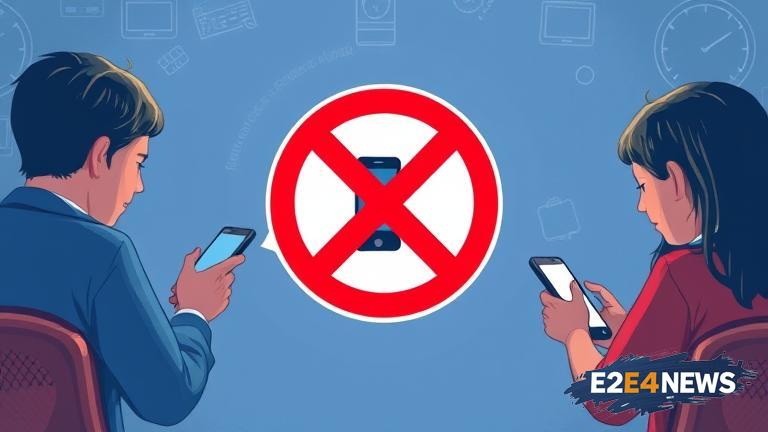Massachusetts Democrats have recently argued that implementing a cell phone ban in public schools can have a positive impact on students’ mental health. The proposal aims to reduce the distractions and stress caused by constant social media notifications and online interactions. By limiting cell phone use during school hours, students can focus more on their academic work and engage in face-to-face interactions with their peers. This, in turn, can lead to improved mental health and well-being. The ban is also expected to reduce cyberbullying and online harassment, which are significant concerns for many students and parents. Additionally, the proposal suggests that students will be more likely to participate in extracurricular activities and sports, promoting physical and emotional well-being. The cell phone ban is not a new concept, as some schools in Massachusetts have already implemented similar policies. However, the Democrats’ proposal aims to make this a statewide policy, applying to all public schools. The idea has received support from some parents and educators, who believe that it can help students develop better time management skills and reduce their reliance on technology. On the other hand, some students have expressed concerns that the ban will be too restrictive and may not be effective in achieving its intended goals. Despite these concerns, the proposal has sparked a heated debate about the role of technology in education and its impact on students’ mental health. As the discussion continues, it is essential to consider the potential benefits and drawbacks of such a policy. Some argue that the ban could lead to improved academic performance, as students will be less distracted and more focused on their schoolwork. Others believe that the ban may not be practical, as some students may need their cell phones for legitimate purposes, such as contacting their parents or accessing important information. The proposal also raises questions about how the ban will be enforced and what consequences students will face if they are found to be using their cell phones during school hours. Furthermore, there are concerns about the potential impact on students’ social skills, as they may have limited opportunities to interact with their peers online. Nevertheless, the Democrats’ proposal has brought attention to the importance of addressing students’ mental health and the need for schools to play a more active role in promoting well-being. By exploring the potential benefits and drawbacks of a cell phone ban, educators and policymakers can work together to create a policy that supports the mental health and academic success of all students. The proposal is also an opportunity to consider the broader implications of technology use on mental health, including the potential risks of excessive screen time and social media use. As the debate continues, it is crucial to involve students, parents, and educators in the discussion to ensure that any policy implemented is effective and beneficial for all. The cell phone ban proposal is a step towards recognizing the importance of mental health in education and the need for schools to take a proactive approach to supporting students’ well-being. By addressing the potential distractions and stress caused by cell phone use, schools can create a more conducive learning environment that promotes academic success and mental health. Ultimately, the proposal has the potential to make a positive impact on students’ lives, and it is essential to continue the discussion to ensure that any policy implemented is in the best interest of all students.
